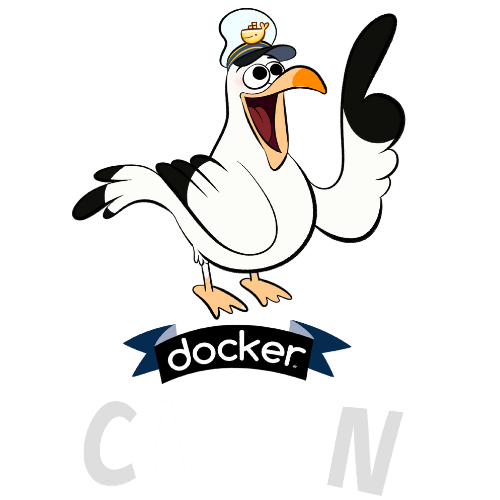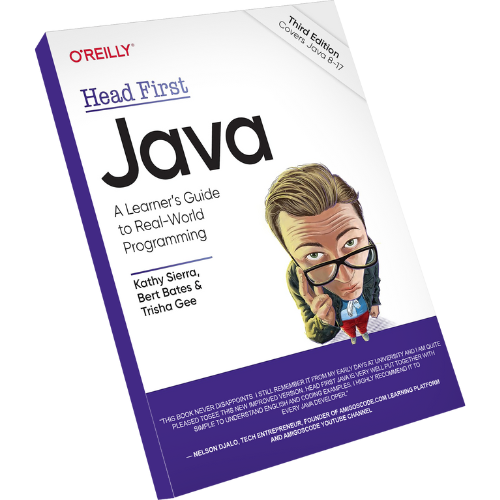
Back to courses
MongoDB
Comprehensive MongoDB course for NoSQL database mastery in data management
Level: All (Junior, Mid and Senior Engineers)

Nelson
Course by
Nelson
The tech stack you will in this course
 mongodb
mongodb terminal
terminal javascript
javascript nodejs
nodejsWhat you'll learn
CRUD Operations
Data Modeling
Performance Tuning
Security Measures
Scalability
Running MongoDB on Docker
Documents and Collections
Writing Queries
Working with Indexes
Cursors Usage
Database Administration
NodeJS Backend Application with MongoDB
MongoDB Cluster on AWS
Are you ready to dive into the world of NoSQL databases? Our comprehensive MongoDB course is here to guide you through every step of the way. This course will unlock a world of opportunities in the field of data management and software development. Whether you're a budding developer, a data analyst, a system administrator, or a tech enthusiast, mastering MongoDB will set you up for success.
By the end of this course, you will have a solid foundation in MongoDB, a popular NoSQL database, that will help you become a more efficient and productive developer.
- MongoDB Basics: Understand the fundamentals of MongoDB and how it differs from traditional SQL databases.
- CRUD Operations: Learn how to perform create, read, update, and delete (CRUD) operations in MongoDB.
- Data Modeling: Get hands-on experience with designing data models in MongoDB.
- Performance Tuning: Learn how to optimize your MongoDB database for better performance.
- Security: Understand how to implement security measures in MongoDB to protect your data.
- Scalability: Learn how to scale your MongoDB database to handle large amounts of data.
Who is the course for?
This MongoDB course is designed for anyone who has a keen interest in expanding their programming skills. Whether you're aiming to become a developer, a data analyst, a system administrator, or a tech enthusiast who is curious about databases, this course is for you.
Don't let your current skill level hold you back - even if you're just starting out, our course is designed to take you from the basics to the more complex aspects of MongoDB. This course is not just about learning - it's about gaining practical skills that you can apply to real-world problems.
Dive into MongoDB
MongoDB, a leading NoSQL database, is not just popular but also a game-changer for any project. Its high performance and scalability make it an indispensable tool for developers. By adding MongoDB to your skill set, you won't just keep up with the competition - you'll stand out. You'll be able to build robust backend applications at an impressive speed.
In this course, you will delve into:
- Understanding MongoDB: We'll demystify what MongoDB is and why it's a preferred choice for many developers, helping you understand its unique advantages.
- Running MongoDB on Docker: You'll learn how to run MongoDB in a Docker container, a crucial skill for creating isolated and reproducible environments, enhancing your development and testing processes.
- Documents and Collections: We'll break down the basic building blocks of MongoDB - documents and collections, enabling you to structure and manage your data effectively.
- Queries: You'll master writing queries in MongoDB to fetch and manipulate data, a fundamental skill for interacting with your database.
- Indexes: We'll explore the importance of indexes in MongoDB and how they can drastically improve your database's performance, ensuring your applications run smoothly.
- Data Modeling: You'll learn how to design effective data models in MongoDB, a key aspect of working with NoSQL databases, allowing you to organize your data optimally.
- Cursors: We'll explain how cursors work in MongoDB and how they can be used to handle large amounts of data, ensuring efficient data retrieval.
- Database Administration: You'll learn the basics of MongoDB administration, including security, performance tuning, and backup, equipping you with the skills to maintain a healthy database environment.
- Building a NodeJS Backend Application with MongoDB: You'll get hands-on experience building a backend application using NodeJS and MongoDB, applying what you've learned to a real-world project.
- Creating a MongoDB Cluster on AWS: You'll learn how to set up a MongoDB cluster on Amazon Web Services (AWS), a valuable skill for handling large-scale applications, ensuring your applications are scalable and reliable.
Dive into MongoDB
In the dynamic world of technology, staying ahead means constantly learning and adapting. MongoDB, a leading NoSQL database, is a tool that can help you do just that. With its high performance, scalability, and flexibility, MongoDB has become a cornerstone in the tech industry. Mastering MongoDB can significantly boost your career prospects and open up a multitude of opportunities.
Here's how:
- Backend Development: MongoDB is a popular choice for backend development. Its ability to handle large amounts of data and its high performance make it an ideal choice for building robust and efficient applications. Knowing how to use MongoDB can make you a valuable asset to any development team.
- Data Analysis: In the era of big data, MongoDB's flexible schema and powerful querying capabilities make it a great tool for data analysis. As a data analyst, understanding MongoDB can help you extract insights from data more effectively, making your analyses more accurate and insightful.
- System Administration: MongoDB is often used in large-scale applications that require efficient data management. As a system administrator, knowing how to administer MongoDB can enhance your ability to maintain and optimize these systems, ensuring smooth and efficient operations.
- Cloud Computing: With the rise of cloud computing, knowing how to set up a MongoDB cluster on a cloud platform like AWS is a highly sought-after skill. This can open up opportunities in the rapidly growing field of cloud computing, where scalability and performance are key.
Course Curriculum
This course has 11 sections including exercises
Getting Started
Up and Running With Mongo
Collections and Documents
Query
1 - Insert Documents
2 - Find
3 - Query Operators
4 - Query Arrays
5 - Update Documents
6 - Delete Documents
Understanding the Cursor Object
1 - Understanding Cursors
2 - Sort Limit and Skip
3 - cursor.forEach
Data Modeling
1 - Embedded and Normalised Data Models
2 - Schema Validation
Indexes
1 - Analysing queries
2 - Creating Indexes
Database Administration
1 - Mongo Config
2 - Backup and Restore DB
3 - Authentication & Authorisation
4 - Sharding, Replication and Mongo as a Service
5 - Gui Clients
Mongo As Service
1 - Create MongoDB Cluster with MongoAtlas
2 - DB User and Network Configuration
3 - Connecting to MongoDB Cluster
4 - Adding Sample Data
5 - Exploring UI & Admin User
Building Apps
1 - NodeJS App
2 - Running NodeJS App
Next Steps
1 - Spring Data JPA
Questions & Answers
What makes Amigoscode programming courses different from others?
Amigoscode offers unique, practical, and industry-relevant programming courses taught by experienced instructors. We focus on real-world applications, giving you the skills you need to excel in your career.
Can I purchase your courses through my company's training budget?
Yes, many of our students purchase our courses through their company's training budget. Our courses are considered a valuable investment in employee skill development, and they can be expensed as part of your company's training and development initiatives.
How can Amigoscode courses help me advance my programming career?
Our courses are designed to bridge the gap between theory and practice. You'll gain hands-on experience, work on real projects, and build a portfolio that will impress employers and clients, opening up new opportunities for career growth.
Do you offer any certifications upon course completion?
Yes, we provide certificates of completion for all our courses. These certificates are recognized in the industry, and they can help you showcase your skills to potential employers or clients.
Can I access the course material at my own pace?
Absolutely! Amigoscode courses are self-paced, allowing you to learn at a speed that suits your schedule. You can revisit the material whenever you need, and you have lifetime access to the course content.
Do I need prior programming experience to enroll in your courses?
No, our courses are designed to accommodate all levels of learners. Whether you're a beginner looking to start your programming journey or an experienced developer wanting to enhance your skills, we have courses suitable for you.
What kind of support do I get during the course?
We provide extensive support to our students through discord. You'll have access to a community of learners and can ask questions, share your progress, and collaborate with fellow students. In addition, our instructors are available to help with any challenges you encounter during the course.
What is your refund policy?
We offer a 15-day refund policy. If you're not satisfied with your course within the first 15 days after purchase, we will provide a full refund, no questions asked. Your satisfaction is our priority.
Featured on




MongoDB
Engage in a dynamic and interactive learning experience as you complete exercises and projects.
